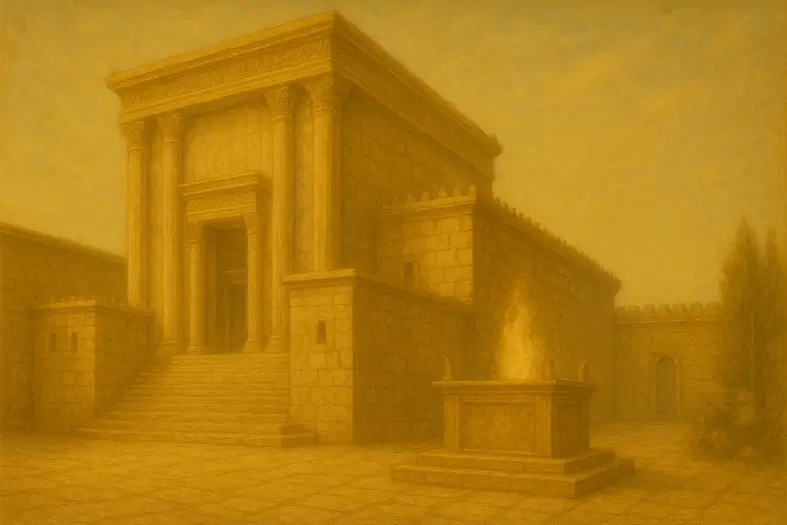


It is forbidden to designate blemished animals as sacrifices for the altar.
This mitzvah prohibits dedicating an animal with a blemish as a korban. Even if one never brings the blemished animal to the altar, the very act of consecrating it for the Mikdash violates the Torah. The offering of unfit animals dishonors the Temple, disrupts the sanctity of avodah, and undermines the symbolic completeness that korbanot are meant to convey.
Rambam codifies this as a distinct prohibition separate from offering blemished animals, emphasizing that holiness begins at the point of consecration. Sefer HaChinuch explains that Hashem deserves only the finest; consecrating a blemished animal reveals carelessness or disregard for His service.
The Talmud discusses the range of blemishes — whether permanent or temporary — that disqualify an animal even from dedication. Ramban interprets that this mitzvah reflects an inner principle: we must not give Hashem what we ourselves would view as flawed or unworthy, but rather our choicest.
Commentary & Classical Explanation:


Represents the concept of spiritual intentionality, purity, and sanctity—set apart for a higher purpose.
Concerns the Beit HaMikdash, korbanot (offerings), and priestly service.
Signifies awe and reverence toward Hashem—living with awareness of His greatness and presence.
Mitzvot that uphold fairness, honesty, and moral responsibility. Justice is kindness structured — ensuring that society reflects G-d’s order through truth, equity, and accountability.
Mitzvot that define and deepen the relationship between a person and their Creator. These include commandments involving belief, prayer, Shabbat, festivals, sacrifices, and personal holiness — expressions of devotion rooted in divine connection.

Dive into mitzvos, prayer, and Torah study—each section curated to help you learn, reflect, and live with intention. New insights are added regularly, creating an evolving space for spiritual growth.

Explore the 613 mitzvos and uncover the meaning behind each one. Discover practical ways to integrate them into your daily life with insights, sources, and guided reflection.

Learn the structure, depth, and spiritual intent behind Jewish prayer. Dive into morning blessings, Shema, Amidah, and more—with tools to enrich your daily connection.

Each week’s parsha offers timeless wisdom and modern relevance. Explore summaries, key themes, and mitzvah connections to deepen your understanding of the Torah cycle.